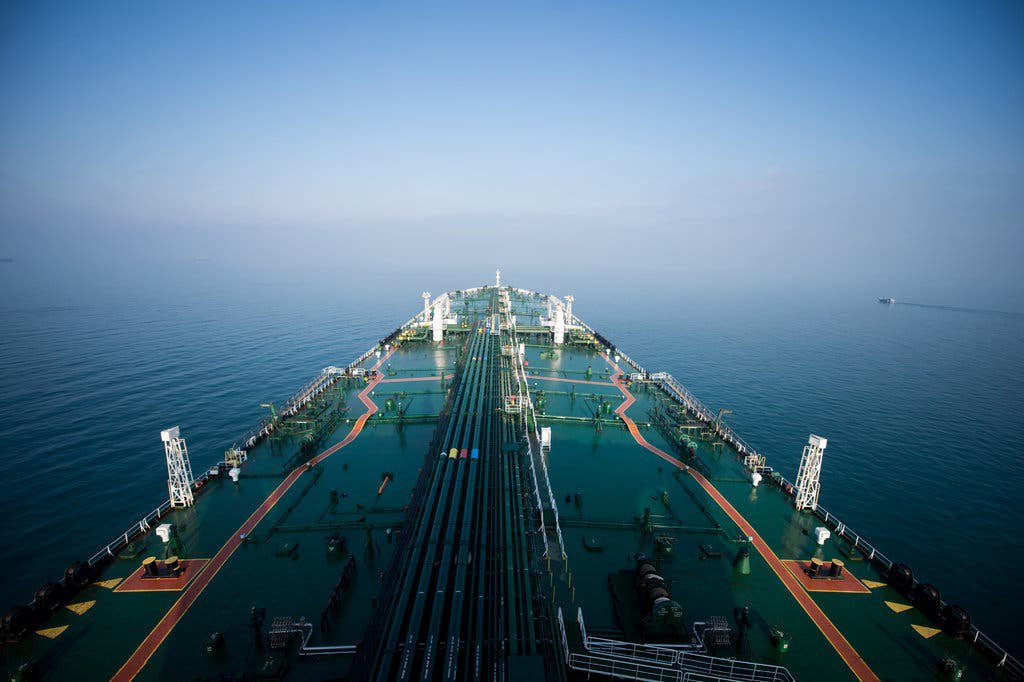The Department of Homeland Security says it has been unable to seize tankers carrying Iran’s oil for a year, thanks to “policy limitations” enacted by the Treasury Department. This has contributed to the 35 percent increase in Iranian oil exports over the past year, according to a bipartisan group of lawmakers demanding the Biden administration rectify its contradictory approach.
“United States sanctions should be enforced to the fullest extent of the law,” a group of 12 senators led by Sen. Joni Ernst (R., Iowa), wrote to President Joe Biden in April.
“As Iranian oil sales continue to rise, and the [Islamic Revolutionary Guard Corps] continues to target US citizens and service members, including inside the US, it is imperative that we use all available government assets to limit the activities of the Iranian regime,” they stressed.
The bipartisan support for the letter signals that members of both parties are increasingly frustrated by the Biden administration’s soft approach towards Tehran. Iran has sold nearly $50 billion worth of oil since the Biden administration took office and began relaxing sanctions on the Islamic Republic’s oil trade.
In the April letter, Ernst and her colleagues—including Sens. Marco Rubio (R., Fla.), Kyrsten Sinema (I., Ariz.), and Richard Blumenthal (D., Conn.)—say the Biden administration is preventing the Department of Homeland Security’s Investigations unit from targeting Iranian ships, “despite several credible leads that the vessels violated sanctions.”
Ernst, the lead signatory on the letter, says the White House’s misguided diplomacy puts Americans at risk.
“Enforcing these sanctions actually hits the Iranian regime where it hurts: their own wallets lined with oil money that funds terrorist activities against Americans both abroad and in the homeland,” Ernst told the Washington Free Beacon, adding, “That requires empowering our federal agents to enforce the law.”
While the Homeland Security seizures unit has been allocated millions in funding, the administration has chosen not to spend this money, according to the lawmakers.
“The failure to support HSI’s Iranian oil seizure and disruption operations … despite available funds, is a policy choice that must be reversed,” they wrote.
Back in mid-March, Iranian Oil Minister Javad Owji said the country’s exports of crude oil have registered their highest level since 2018, after the US unilaterally withdrew from the 2015 Iran nuclear deal, and re-imposed sanctions against Tehran to curb the exports and the associated revenue to Iran.
In January, figures by international tanker tracking services showed that oil exports from Iran in late 2022 had reached records not seen since the country came under US sanctions nearly five years ago.
